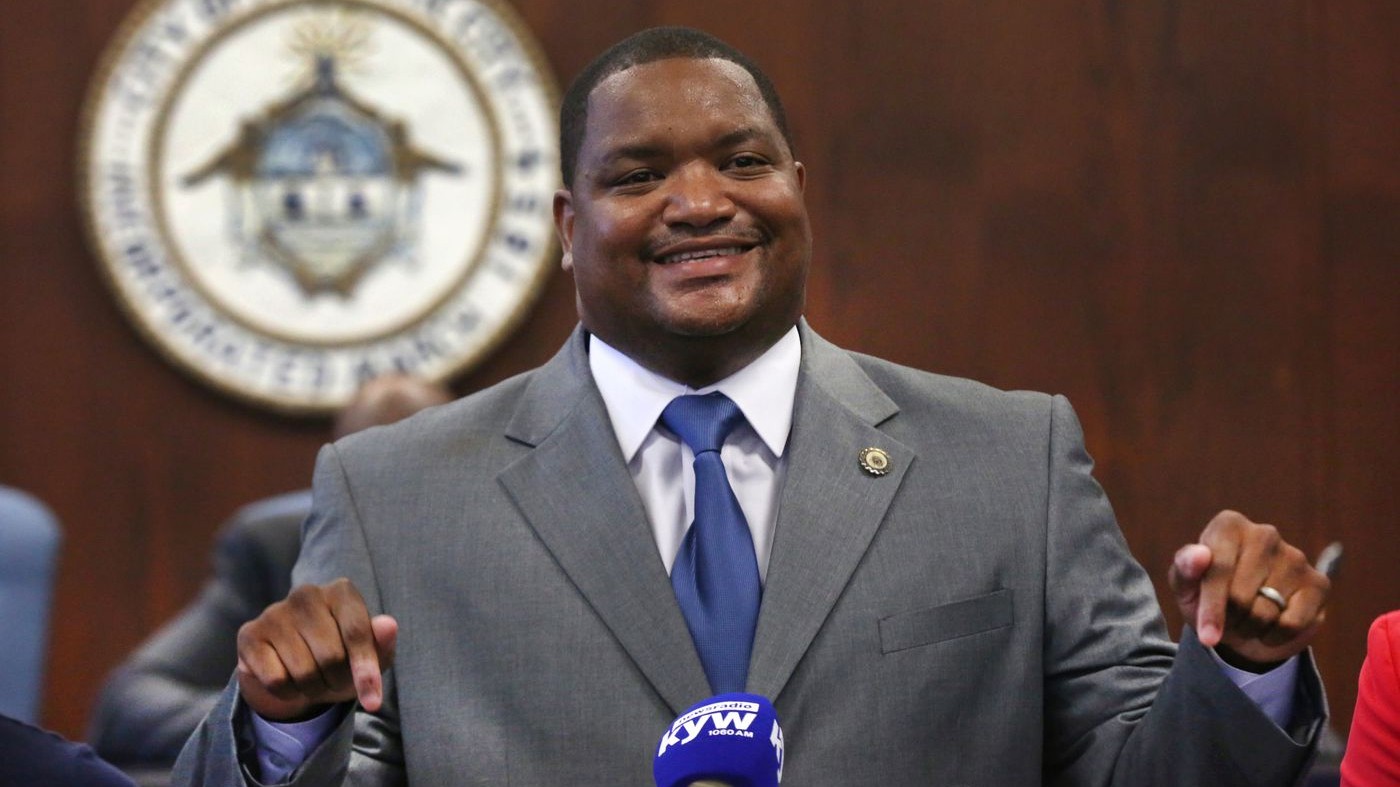A bill seeking to give Atlantic City a 1.25% cut of sports gaming dollars generated by resort casinos for property tax relief advanced in a Senate committee Thursday morning. Bill S845 would redirect the revenue to the city, which is currently earmarked for the Casino Reinvestment Development Authority (CRDA) to market and promote the popular tourist destination.
“When the bill (legalizing sports gaming) first passed in 2018, the only municipality or township left out of benefiting from sports gaming was Atlantic City,” said Atlantic City Mayor Marty Small Sr., who was in Trenton to speak in favor of the bill, according to The Press of Atlantic City. “Make that make sense.”
Small has long championed the proposal, as he believes it would help the city keep more taxes generated by its casino industry and take more control of its finances. While he remarked the CRDA has done “a great job” thus far in its partnership with the city, the Mayor also said he did not like “the attitude of putting a limit on what Atlantic City gets.”
Thus, Small proposed the Authority funding should continue but, as a state agency, he believed it could get its funding from other areas. The decision to give CRDA the municipal share of sports betting taxes was made early in the state’s takeover of the city, which in 2016 was facing possible bankruptcy, the cited source further reports.
The amount at stake in the new proposal is about $2 million a year, according to bill sponsor Sen. Troy Singleton, a southern New Jersey Democrat, reports Associated Press. It comes as Atlantic City authorities complain that the city gets no revenue from a variety of state-imposed taxes on several aspects of the casino and tourism industry.
“Everyone in this room, and there are about 25 of us, can drive to Atlantic City,” Small said in Trenton. “We go into our room, that’s the room tax. We go to a late-night show, that’s luxury tax. Then we make a sports bet; that’s sports betting tax. Guess what the residents of Atlantic City get from our stay?” he asked. “Zero. When are we going to get our slice of the pie?”
But not everyone is on board with the bill. State Sen. Vincent Polistina, a Republican representing the Atlantic City area, alleged the city already receives ample tax relief under a revised payment in lieu of taxes bill, which was approved by the Legislature in December.
Polistina opposed the bill, according to AP, and said that any proposed change to money flowing to the casino reinvestment agency needs to come after a “global discussion” of the city’s present situation and its future, especially with the upcoming addition of more casinos in New York.
Bill S854 was supported by the three Democrats on the Senate State Government, Wagering, Tourism & Historic Preservation Committee but opposed by Polistina and Sen. James W. Holzapfel, R-Ocean, explains Press of Atlantic City.
#EASENJ: S.854 & S.1110 were both approved by the #NJSSG today! Learn more on the bills, sponsored by @Troy4NJ7, here: https://t.co/UPh19gRwTK pic.twitter.com/PoYXJnk7GD
— NJ Senate Democrats (@NJSenDems) March 24, 2022
Singleton defended the legislation he sponsors, which still requires approval of the full Senate and Assembly for a passage, stating it would be a golden opportunity to give money back to taxpayers. “If we’re serious about affordability, here’s an opportunity,” he said.
Under the current law on sports wagering taxes, gross revenue from casino sports pool operations, including mobile, is subject to an 8.5% annual tax, to be paid to the Casino Revenue Fund. Additionally, an investment alternative tax of 1.25% is to be used exclusively for tourism and marketing programs for Atlantic City. Gross revenue from casino online sports pool operations is subject to a 13% and 1.25% rate, for the same purposes respectively.
Meanwhile, gross revenue from racetrack sports operations, including mobile, is subject to an 8.5% annual tax to be paid to the State General Fund; with an additional 1.25% tax on such revenue to be paid to the Division of Local Government Services in the Department of Community Affairs for distribution to the municipality and to the county in which the sports lounge is located.
Small remarked that, unlike municipalities that host racetracks with sports betting options, Atlantic City has not benefited from the 1.25% tax. He further said the city’s financial picture had drastically improved since 2016, when the city was near bankruptcy.



